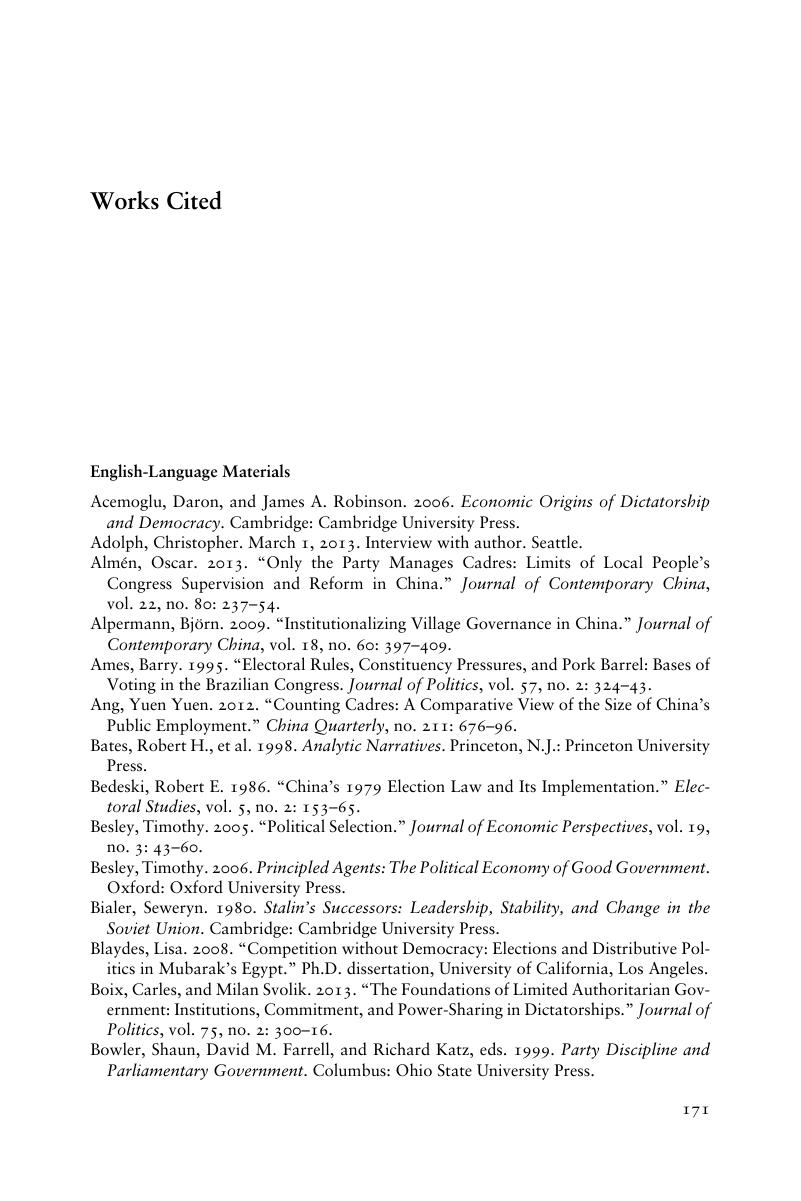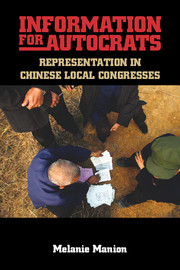Book contents
- Frontmatter
- Dedication
- Contents
- Tables and Figures
- Acknowledgments
- Introduction
- 1 Institutional Design
- 2 Selectoral Connection
- 3 Authoritarian Parochialism
- 4 Putative Principals
- 5 Independent Candidates
- Conclusion
- Appendix A Interviews and Surveys
- Appendix B Reliability Check on Delegate Self-Reports
- Appendix C Searching Independent Candidates on Sina Weibo
- Works Cited
- Index
- Miscellaneous Endmatter
- References
Works Cited
Published online by Cambridge University Press: 05 December 2015
- Frontmatter
- Dedication
- Contents
- Tables and Figures
- Acknowledgments
- Introduction
- 1 Institutional Design
- 2 Selectoral Connection
- 3 Authoritarian Parochialism
- 4 Putative Principals
- 5 Independent Candidates
- Conclusion
- Appendix A Interviews and Surveys
- Appendix B Reliability Check on Delegate Self-Reports
- Appendix C Searching Independent Candidates on Sina Weibo
- Works Cited
- Index
- Miscellaneous Endmatter
- References
Summary

- Type
- Chapter
- Information
- Information for AutocratsRepresentation in Chinese Local Congresses, pp. 171 - 186Publisher: Cambridge University PressPrint publication year: 2015

